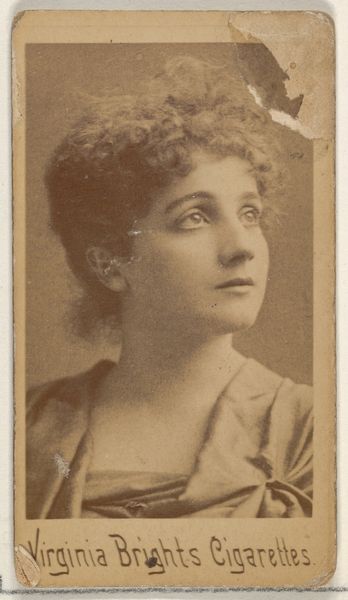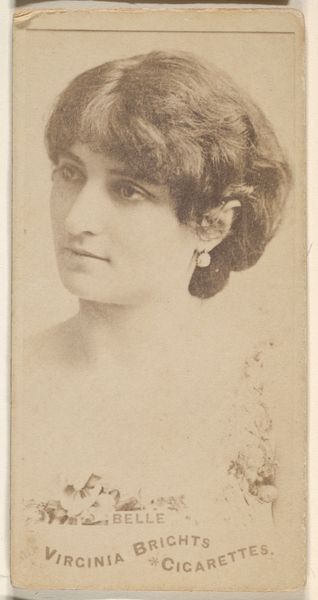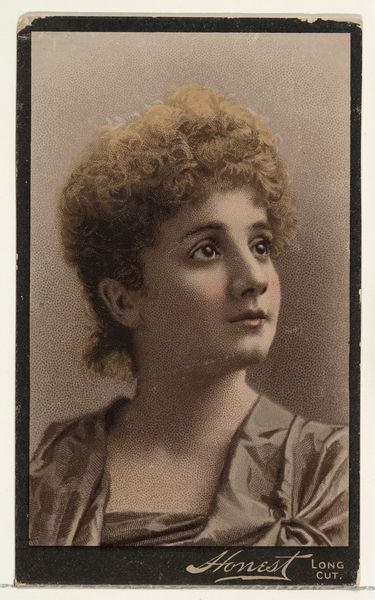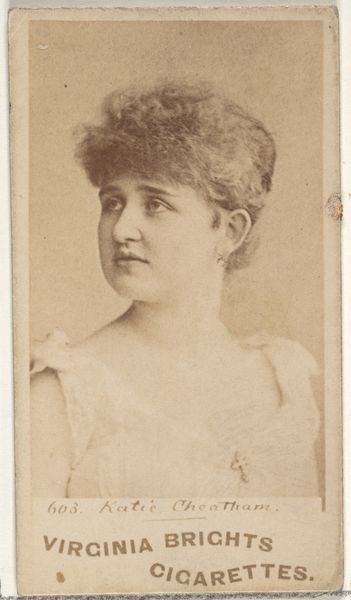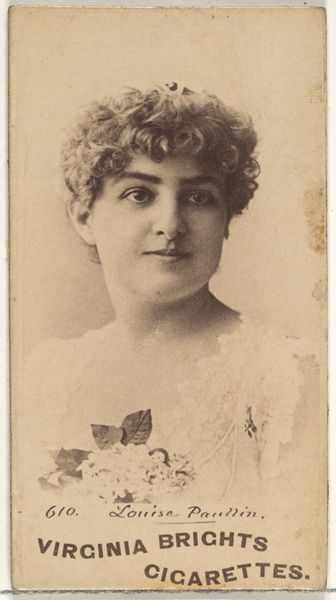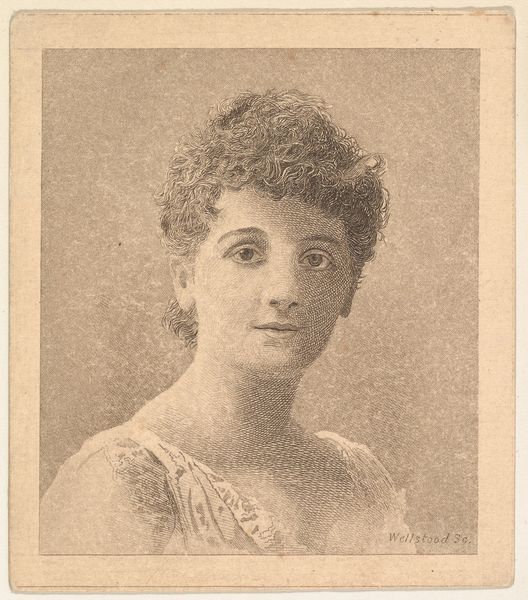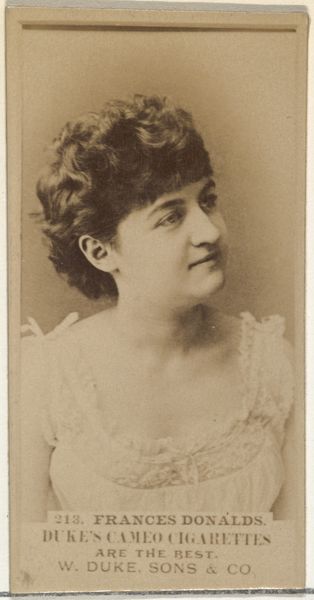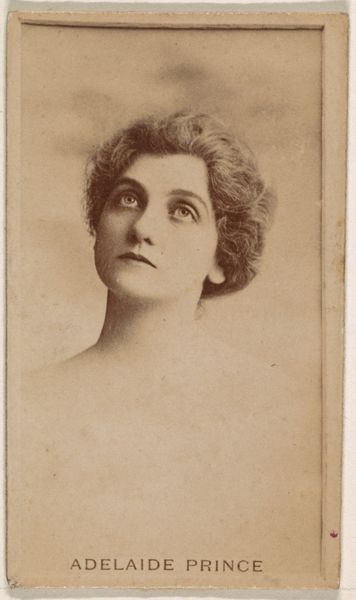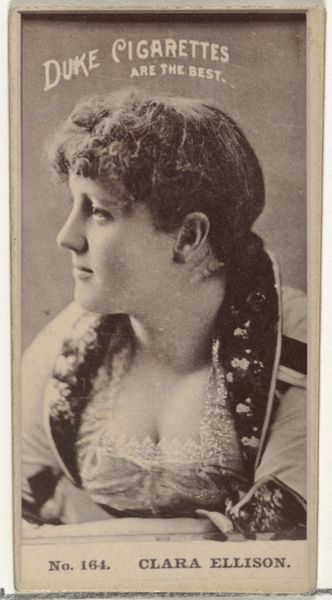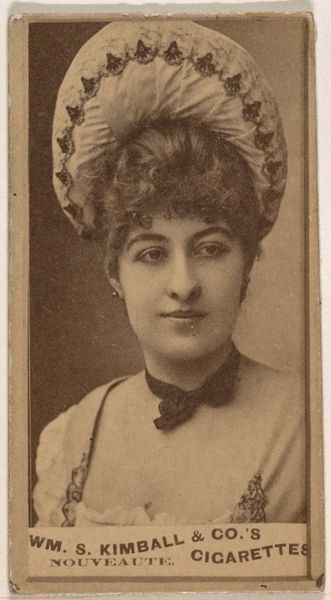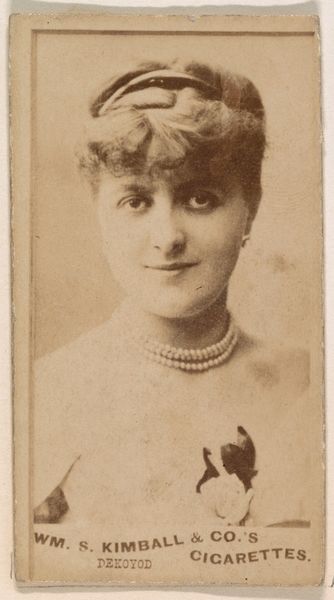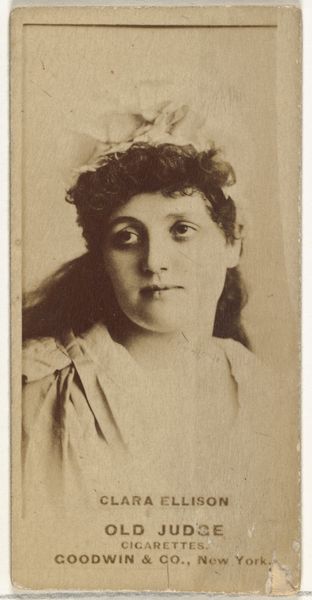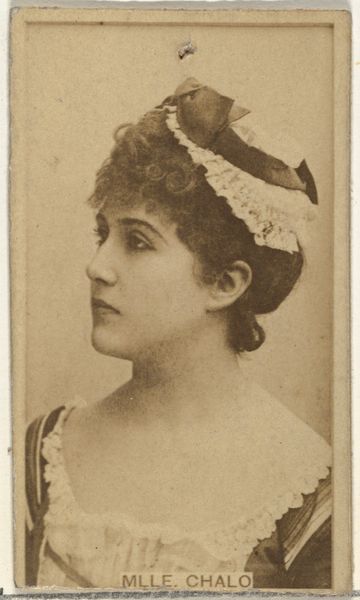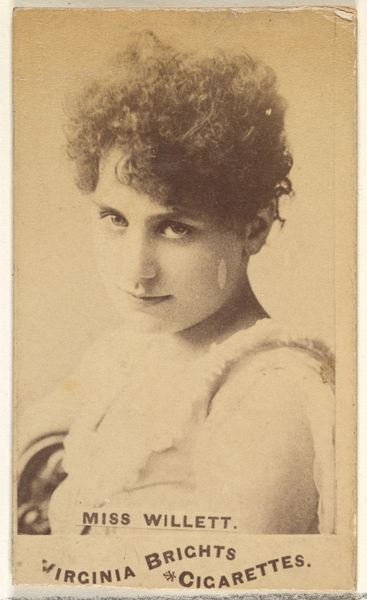
Card Number 565, Leslie Chester, from the Actors and Actresses series (N145-7) issued by Duke Sons & Co. to promote Duke Cigarettes 1880s
0:00
0:00
drawing, print, photography
#
portrait
#
drawing
#
pictorialism
# print
#
photography
#
genre-painting
Dimensions: Sheet: 2 11/16 × 1 3/8 in. (6.8 × 3.5 cm)
Copyright: Public Domain
Curator: This card is from the 1880s, and part of the "Actors and Actresses" series produced by W. Duke, Sons & Co. to promote Duke Cigarettes. It features a portrait of Leslie Chester. Editor: There’s something compelling about the way this small portrait presents itself, with this figure gazing upward. And the aging of the photographic print has made it almost sculptural. Curator: Right. Duke Cigarettes included these cards within their cigarette packs as a marketing strategy. It was a way to connect their brand to popular figures of the time, and a very clever business practice that blurred the line between commercialism and culture. Editor: Exactly. Considering the materiality, it’s intriguing how such ephemeral paper could become a medium to broadcast identity and aspiration on such a large scale. We have to also acknowledge the cultural impact on laborers responsible for these, many whom would be women who received significantly lower pay than male workers. Curator: The series speaks volumes about the cultural values and pastimes of the period. This pictorialist aesthetic captured here aimed to elevate photography to fine art. This particular card functions not just as a portrait of a performer, but as a commercial object deeply ingrained in social trends. Editor: Agreed. It represents the public consumption of imagery and the dissemination of certain ideals through everyday items. The integration of celebrity portraiture into the commodity system marks a critical development in media and advertisement history. Curator: By making Chester the subject, and by extension, linking Chester to this consumer habit, it gives insight to both her role as an artist as well as a kind of artifact representative of the social forces at the time. Editor: Precisely. Examining it reveals not only an appreciation of art through consumerism, but it also questions who holds cultural influence at the time, and it emphasizes the complicated conditions of that era. Curator: It's fascinating to unpack the layers embedded in such a small, mass-produced item. It leaves me to wonder about Chester herself and what she would make of its after-life. Editor: And it certainly pushes one to contemplate the ethical and social footprints of everyday production, a practice of awareness that's as crucial now as it was then.
Comments
No comments
Be the first to comment and join the conversation on the ultimate creative platform.
